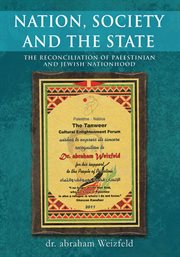Nonfiction
eBook
Details
PUBLISHED
Made available through hoopla
DESCRIPTION
1 online resource
ISBN/ISSN
LANGUAGE
NOTES
This work treats the European political philosophy that has engendered the Nation-State concept -- considered to be the logical evolution of human history as a linear periodization into the Modern State. This Modern State concept is treated as the end of history in liberal democratic theory, in spite of it remaining a European phenomenon. Where it has been imposed beyond the European political culture it has provoked a plague of civil wars and occupations, such as in Palestine. In Europe itself it has also resulted in such features as the Spanish Inquisition, the latter-day Spanish civil war and the fascist dictatorship that followed, as well as the Nazi regime and its Holocaust in alliance with the various fascist allies seeking their own Nation-State. Various attempts have followed in Europe itself to overcome the Nation-State itself by means of the European Union which sought to unite the Nation-States with a federated effort to bring some stability to the economy and life of the region in light of the disastrous wars of the twentieth century. The contradictions of the Nation-State and Federalism become ever more apparent as the EU now descends into economic chaos. This sub-title invites a comparison and a contrast between the Jewish political-culture and the Zionist movement. One may consider political-culture as encompassing Civil Society, history, religious theology and law; comprising a collective consciousness, this historical heritage forms a national identity which is currently oriented into nationalism by the State. The endurance of national identity apart from the State and with the extinction of the State is projected as the basis of an independent Civil Society
Mode of access: World Wide Web







